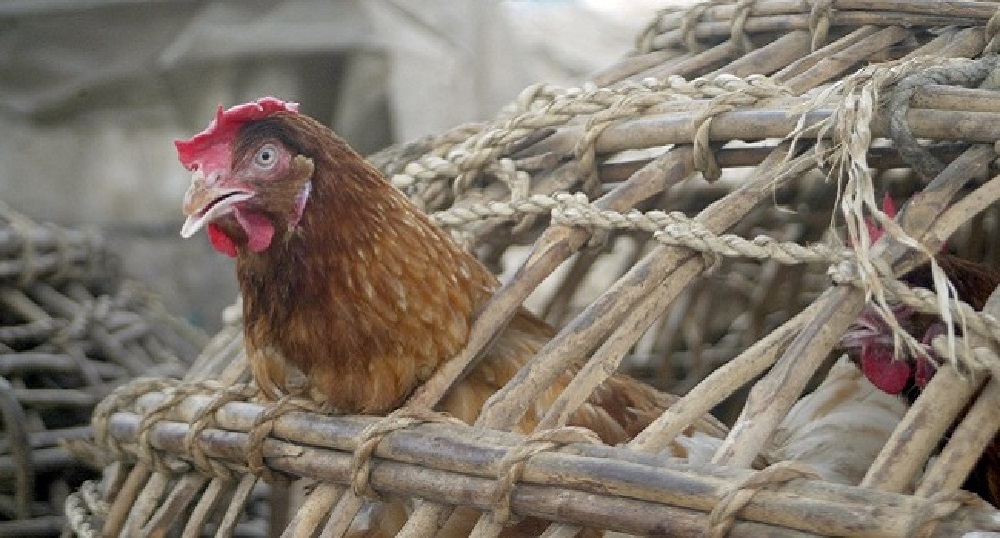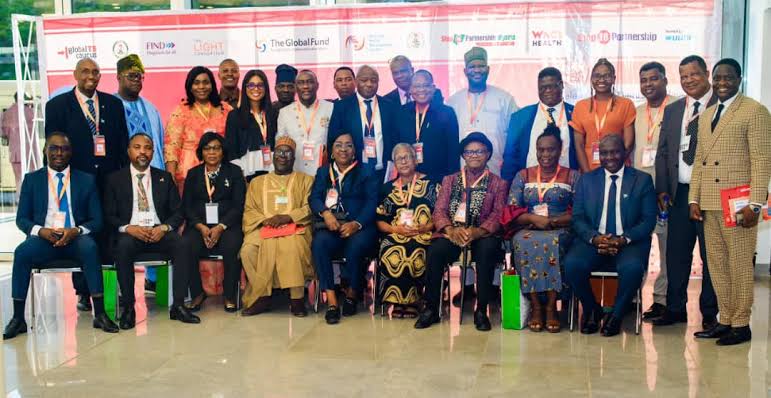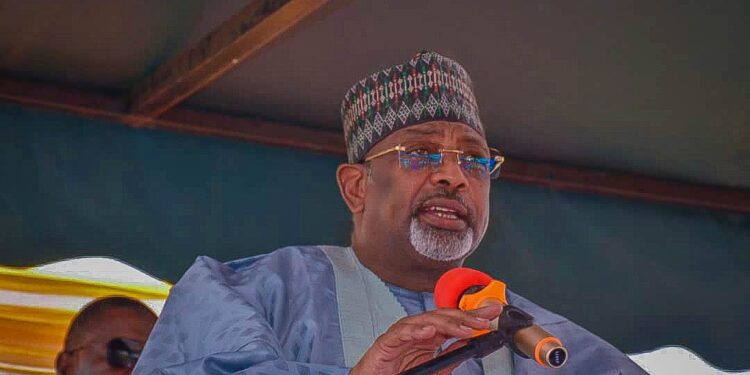News
FG Confirms Bird Flu Outbreak In Kano

The Federal Government has confirmed an outbreak of Highly Pathogenic Avian Influenza, commonly referred to as bird flu, in Kano State.
The disease, which affects various bird species, including layers, ducks, guinea fowls, and turkeys, has raised concerns over its potential spread in the region.
In a circular signed by Dr. Taiwo Olasoju, on behalf of the Chief Veterinary Officer of Nigeria, authorities highlighted the heightened risk of transmission during this period.
“We urge all state veterinary offices and relevant agencies to activate their surveillance systems immediately. Strict biosecurity measures must be implemented, and public awareness campaigns intensified to curb the spread of the virus,” the circular stated.
Origins of the Outbreak
Dr. Usman Gwarzo, Chairman of the Poultry Association of Nigeria (PAN), Kano State chapter, revealed how the outbreak started. He recounted an incident from December 2024 that sounded the alarm.
“A young man from Galadanchi quarters in Gwale Local Government Area purchased a duck from Janguza market in Tofa LGA and introduced it to his flock of hens and chickens. The duck suddenly died, and shortly after, the chickens followed,” Dr. Gwarzo explained.
The carcasses were taken to the Gwale veterinary clinic, where avian influenza was suspected.
“Samples were sent for testing, and by the first week of January 2025, the results confirmed the presence of the virus,” he added.
Preventative Measures in Place
Although no cases have been reported from commercial poultry farms, stakeholders are not taking any chances. PAN Kano State chapter is collaborating with the government to raise awareness among poultry farmers and traders.
“We are urging farmers to avoid mixing birds from different sources, especially during this time. Biosecurity is critical. Farmers must disinfect their facilities regularly and report any unusual deaths immediately,” Dr. Gwarzo emphasized.
The circular also called for closer monitoring of poultry populations to detect and respond to potential cases promptly. Public awareness campaigns are being ramped up to educate farmers and traders about the dangers of the virus and how to protect their flocks.
What Farmers Need to Know
Veterinary experts advise farmers to keep their poultry isolated and report sudden deaths to the nearest veterinary clinic.
“Early detection can help us contain the virus before it spreads further,” Dr. Gwarzo stressed.
Poultry sellers at Janguza market expressed concern over the situation.
“We are scared because bird flu is dangerous. We’ve seen cases in the past where it wiped out entire farms,” said Musa Abdullahi, a trader at the market.
Meanwhile, the Kano State Government has pledged to support farmers and ensure swift containment measures.
Impact on Poultry Businesses
While the outbreak remains confined to small-scale farms, fears of a wider spread have already begun to affect poultry businesses. Some traders reported a dip in sales as consumers grow wary of purchasing poultry.
“It’s tough right now. People are afraid to buy chickens, and we’re losing customers,” said Aisha Yusuf, a chicken seller at Sabon Gari market.
Authorities continue to reassure the public that with the right precautions, the outbreak can be contained.
“We are doing everything possible to prevent this from escalating,” said Dr. Gwarzo.
For now, Kano residents are advised to remain vigilant and report any suspicious bird deaths to veterinary authorities.
News
AGF Confirms Recovery Of $110m Worth Assets

News
More funding required to end tuberculosis in Africa – Stakeholders

By Francesca Hangeior
The Global TB Caucus and partners have identified adequate funding, strengthened multi-sectoral partnerships, and coordinated actions as strategies to ending Tuberculosis in Africa.
The TB caucus and partners including the Stop TB Partnership Geneva, the Global Fund, FIND, Light Consortium, WACI Health, among others, made this known in a communique issued on Wednesday, at the end of the 2024 fifth Africa TB summit held at the National Assembly, Abuja, with support of the AIDS, TB and Malaria Control Committee, parliamentarians from 18 African countries, civil society organisations, experts, and development partners.
The 18 countries include Cameroon, Central African Republic, Congo Brazzaville, Côte d’Ivoire, Democratic Republic of Congo, Eswatini, Gabon, Kenya, Lesotho, Malawi, Namibia, Nigeria, Sierra Leone, South Africa, Tanzania, Uganda, Zambia and Zimbabwe.
Building on commitments from the 2023 UN High-Level Meeting on TB, the summit aimed to bring parliamentarians abreast with current TB situation in the African region and review progress towards achieving the UN HLM target for TB diagnosis and treatment to be achieved by 2027.
It said the summit served as an opportunity to strengthen collaboration, foster unity across African nations, and empower parliamentarians with information to advance TB prevention, diagnosis, treatment, and funding, with key discussions focusing on enhancing domestic resource mobilisation, improving policies, and increasing funding for TB responses while addressing social determinants such as stigma and gender disparities.
“One of the summit’s significant outcomes was the adoption of the Abuja Statement on Financing to End TB in Africa, an outcome document of the Africa regional dialogue on financing to end TB in Africa co-organised by the Stop TB Partnership, African Union, Africa Parliamentary TB Caucus, and the Network of African Parliamentary Committees of Health representing governments, parliaments, civil society, technical partners, the private sector, and other stakeholders from 22 high TB burden countries, a landmark commitment that will be operationalised through the Global TB Caucus 2025 Roadmap for Africa.
“The meeting was brought to successful conclusion with commitments from parliamentarians to accelerate progress towards achieving the commitments of UN HLM political declaration through increased advocacy for domestic and global funding to close TB gaps, leveraging innovative funding models, strengthened multi sectoral partnerships with CSOs, relevant Ministries, Departments and Agencies, governments, and private entities for capacity building, advocacy, and coordinated actions in the fight against TB, prioritisation of vulnerable groups and affected communities, improved investment in advanced diagnostics, Research and Development.
“These will be centered on the Global TB Caucus pillar of enhancing legislative engagement through the launch and revitalisation of national caucuses, while mobilising more MPs/colleagues at the national level to champion TB, enact supportive laws, and drive public awareness campaigns for increased TB funding and mitigate against TB stigma and discrimination,” the communique partly read.
A Member of Parliament, Kenya, and Chair of Africa TB Caucus, Stephen Mule said, “We have witnessed 10 years of impact as the Global TB Caucus. We remain committed to ensuring we end TB by 2030. We as parliaments pledge our time and political influence until the battle is won.”
A Member of Senate Bureau, Cameroon, and Africa TB Caucus co-chair (Francophone), Dr Pierre Flambeau Ngayap stated, “We congratulate Nigeria on the remarkable progress in their fight against TB. This is evident in the display of high level political will in the fight against TB in the country. The lessons learnt from this summit both from participants and experts are valuable and I hope that the knowledge gained will support us in domesticating the advocacy priorities in our respective countries.”
Adding, a Member of Parliament Namibia, and co-chair, Africa TB Caucus, Hon. Elma Dienda said, “The technological advancements in the fight against TB especially in the area of new tools, diagnostic and treatment are commendable and this goes to show that the goal to end TB is achievable.”
News
Food security: FG To Deploy Drones For All-Year-Round Farming- Minister reveals

The Federal Government is set to deploy advanced technology, including drones, to enhance agricultural productivity and promote all-year-round farming in Nigeria.
This was revealed by Sen. Abubakar Kyari, the Minister of Agriculture and Food Security during a briefing with State House correspondents on Tuesday.
Kyari emphasized that technology would play a crucial role in speeding up various agricultural processes. He stated that the government intends to use drones to accelerate land clearance, harvesting, and the deployment of agricultural chemicals such as pesticides and herbicides.
“The faster we clear land, harvest, chemical deployment, whether it’s pesticide, whether it’s herbicide, the better,” Kyari said.
He further explained the efficiency of drones, highlighting that “what one drone can do, a hundred people cannot do in a day.”
The minister noted that drones would help speed up agricultural activities, making it possible to harvest quickly and prepare the land for the next cycle of cultivation. This move is aimed at improving the efficiency of the farming process and ensuring that the land is continuously utilized for cultivation.
Support to youth engagement in Agriculture
Kyari also revealed plans for the ministry to collaborate with the private sector to support young Nigerians in taking advantage of the government’s mechanization programme.
He emphasized the importance of engaging the youth in agriculture, noting that agriculture should not only be viewed as a means of sustenance but also as a viable business opportunity.
“It is very important to also educate our farmers that agriculture is no longer for the stomach only. It should also be seen as a business, something that will earn a livelihood,” he said.
The minister acknowledged that traditional input support may not be sufficient to incentivize smallholder farmers. He stressed the need to shift the mindset of farmers, focusing on ways to engage them in a manner that encourages private sector funding to support agricultural production.
What you should know
In line with the Federal Government’s efforts to modernize agriculture through technology, the government is also set to launch a youth farmers enrollment portal aimed at creating direct jobs for Nigerian youth across the agricultural value chain.
This initiative was discussed during a visit by the Nigerian Youth Economic Engagement and De-Radicalisation Programme (NIYEEDEP) delegation to the Minister for Youth Development, Comrade Ayodele Olawande, on Monday.
The portal will provide Nigerian youth with the opportunity to apply for agricultural grants and support, with the official unveiling scheduled for January 17, 2025, in Abuja.
-

 News21 hours ago
News21 hours agoDefence Ministry Solicits Additional N20bn Families Of Deceased Military Personnel
-

 News22 hours ago
News22 hours agoNASS constitutes joint committee to probe N4trn revenue shortfall
-

 News21 hours ago
News21 hours agoMan sets girlfriend ablaze during argument in FCT, still confesses love
-

 News22 hours ago
News22 hours agoWike plans special reception for FCT victorious athletes
-

 News21 hours ago
News21 hours agoPolice Nab Supporters Of Impeached Lagos Speaker, Obasa
-

 News21 hours ago
News21 hours agoFear of pump price hike looms as petrol depots increase prices
-

 Sports23 hours ago
Sports23 hours agoRigobert Song Announced As New Central African Republic Coach
-

 Sports23 hours ago
Sports23 hours agoFormer Man City Captain, Manager Tony Book Dies


















